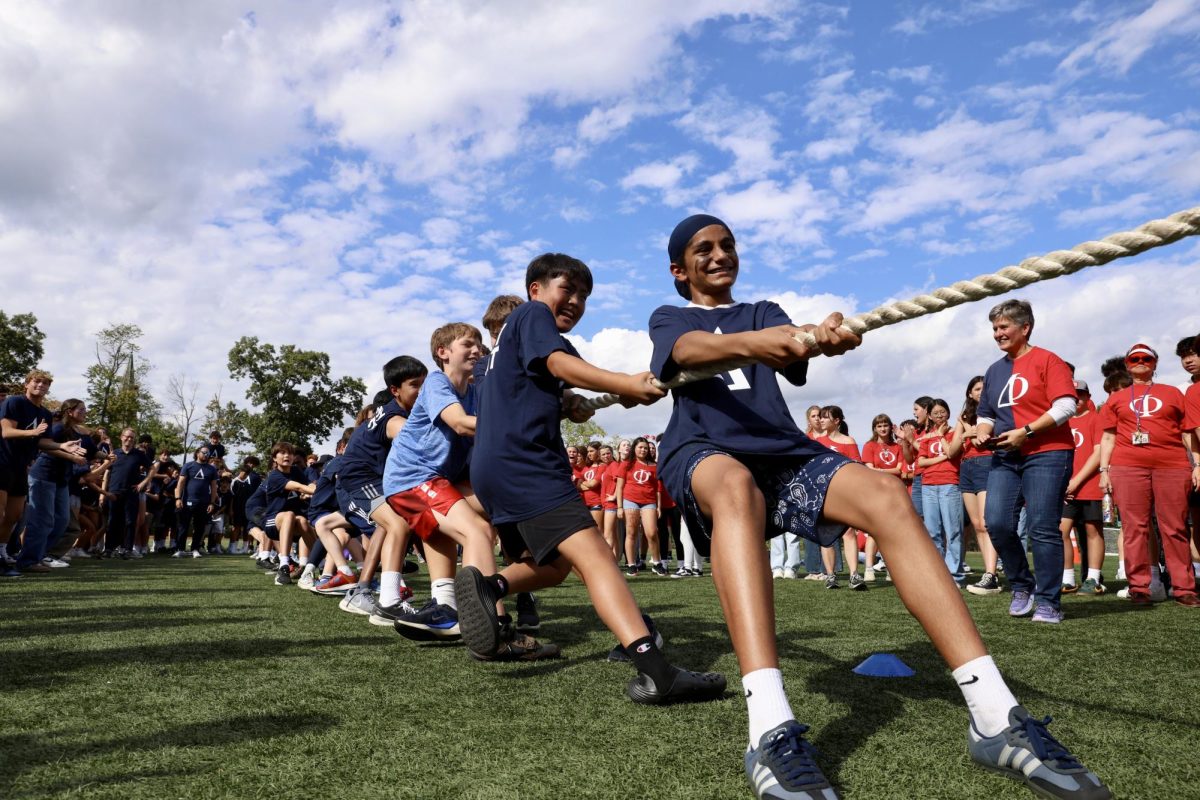“Our community thrives on strong interpersonal relationships and a deep sense of belonging. At the heart of our Harkness pedagogical approach, we place value on the art of discussion, of being present, and of collaborating with one another,” wrote Head of School Laura Danforth. On Aug. 15, members of the Masters community were informed of a significant change for the 2024-25 school year: Phones would no longer be allowed during the school day.
My initial reaction to the new policy likely mirrored many of yours – sheer horror.
The thought of navigating the school day without immediate access to our phones seemed unimaginable. Questions arose: How would we coordinate lunch plans, check the LMS or call our parents to vent about the frustrations of the day? My mind spiraled with these life-or-death questions and for a brief, dramatic moment. It felt like the end of civilization as we know it.
A 2022 study conducted by Pew Research Center revealed that 54% of teenagers believe giving up social media would be difficult, while 46% admitted they are online almost constantly. Interestingly, only 36% felt they spent excessive time on their devices – a statistic that reflects a broader societal dependence on digital platforms, often unnoticed by the users.
However, only a couple of days into this phoneless reality, my perspective has changed.
Before the new phone policy, my instinctive reaction after class was to reach for my phone and open Snapchat (unless I was frantically checking my schedule or rushing to Cushing). Now, without immediate access to my device, I aimlessly roam the halls attempting to locate my next class, lost, but, unexpectedly, more social. The transition has been disorienting at times, but it has made me not only less reliant on my phone but also aware of how much time I once wasted on mindless scrolling.
Furthermore, the lack of phones fosters spontaneous face-to-face interactions. Without the default option of retreating into a screen during awkward moments, I now strike up conversations with classmates I might not have otherwise spoken to. Unscripted moments, such as commiserating over a difficult test or sharing stories in the library, have led to more genuine human connections.
The administration’s decision to ban phones reflects a larger national concern about the rise of “screenagers”- a generation that has grown up with smartphones and is often criticized for being perpetually glued to their screens. Experts warn that excessive screen time can hinder social skills, increase anxiety, and reduce attention spans. Masters ,and its teachers, are aligning with a growing movement to encourage digital mindfulness by enforcing a phone-free environment. Schools across the country are implementing similar restrictions in response to studies, such as the one Danforth provided in her email, linking phone use with declining mental health and academic performance. In a world where it is increasingly difficult to disconnect, policies like these challenge us to re-evaluate our relationship with technology.
Another advantage of the new policy is the blissful relief it provides from the relentless onslaught of social media conflicts and group chat notifications. Throughout the school day, we are no longer subjected to the constant distractions of the digital world, as the no-phone rule creates a buffer between academic life and external pressures. It is nice to focus on my classes and the people right in front of me without worrying about my long-distance friend’s latest issue.
While I originally met the no-phone policy with a mix of disbelief and dread, I have come to appreciate its benefits. The “disconnected” world isn’t the end of the world; it might just be a better one.







